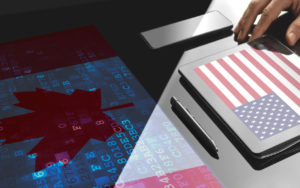Public and privately funded initiative led by Propulsion Québec yields results for Canadian exporters of innovative transportation solutions

Public and privately funded initiative led by Propulsion Québec yields results for Canadian exporters of innovative transportation solutions
In ordinary times, companies and governments rely on trade missions to help expand markets, develop business partnerships, make sales and drum up investment in other parts of the world.
But those missions depend on cross-border air travel and are fueled by countless handshakes, face-to-face meetings, facility tours, meals and drinks. So when COVID-19 hit, they were obvious targets for immediate cancellation.
But not everywhere.
Earlier this year, Propulsion Québec, an association representing the province’s electric and intelligent transportation sector, was set to lead a mid-May trade mission to California — its 16th trade mission since 2018 — to coincide with the Advanced Clean Transportation Expo. But when that plan vaporized with the pandemic, rather than cancel, it opted to try something new — staging a virtual trade mission via video conference.
“We still wanted to support [those presenting] and support their exporting activities,” says Sarah Houde, Propulsion Québec’s president and CEO.
Investors and business partners
Last week, the results of the online pivot came together in a two-day Advanced Mobility Roadshow, cohosted on Zoom with Propulsion Québec’s provincial and federal government partners, participating sponsors and, on the U.S. side, the Autotech Council, a California-based association of automotive sector vendors and investors.
The opening-day saw 15 Quebec companies — start-ups, such as Lithion Recycling, a battery recycler, and more established players, such as Vision Marine Technologies, an electric boat manufacturer — profile their companies and their needs in five-minute pitch sessions to potential investors or business partners in the U.S.
In all, about 130 attendees participated. Presenters were grouped into three categories: electrification and batteries; special vehicles and trucks; and connected vehicles and technology. Each presenter was introduced by Autotech Council chairman Derek Kerton. In their talks, some discussed investing, others provided product details. Technical hiccups were minor.
During the presentations, audience members could post questions or request individual meetings afterwards. The rest of day one and all of day two were dedicated to 15-minute private meetings between presenting companies and members of the California audience — where the real proof of this virtual trade mission concept would, or would not, be met.
Initially anxious
According to Houde, who spoke with Electric Autonomy after the event, organizers were initially “anxious” about changing the format. But ultimately, she was “very, very happy” with the reaction.
“We had a lot of people that stayed for the whole time. We’re pretty hopeful this can [reshape] the way we’re doing business,” she says, noting that one of the obvious upsides of the virtual format is that it made attending more affordable and accessible for some attendees.
Jean-Christophe Lambert, Lithion Recycling’s business development manager, whose company is in the pilot project stage, says they signed up for the original trade mission because it was taking place in California — but the location change didn’t impact their decision to attend.
“In developing our process to recycle the lithium-ion batteries, California is definitely a good market for us because about 50 per cent of EVs in the U.S. are sold in California, so it was definitely a good opportunity to connect with some people,” says Lambert. “With COVID, people are really busy and have other concerns, so it’s still really nice to have a platform like this, where everything is organized beforehand and you have the chance to get meetings, so for us it was a no-brainer.”
Virtual to real life
As a result of his pitch session, Lambert says Lithion secured six or seven private follow-up meetings.
“In those cases, it went pretty well,” he says. “It was really a classic meeting for us with one-on-one and it was good because people had seen our presentation beforehand with the pitches, so they kind of already knew our business going into the meeting. The format worked well I think.”
Houde isn’t sure how the next trade mission will look, but an online mission or online component to an in-person meeting is possible.
“We could probably do both at the same time, maybe a virtual mission as maybe a build-up to an in-person event, to create an in-advance relationship,” she says. “We’re definitely going to keep trying new ways to do this kind of business.”












